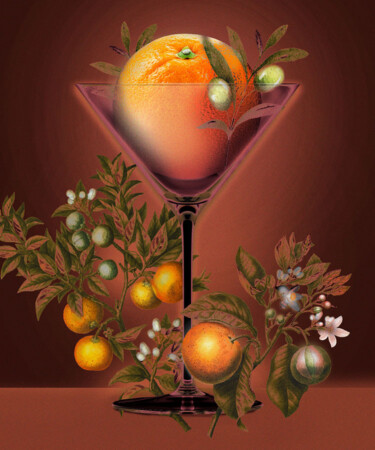No drink can cause more of a stir than the Martini. Blame its convoluted history or James Bond’s love of “shaken, not stirred” vodka Martinis, but whenever someone deviates from its “classic” composition of gin, vermouth, and olive garnish, opinions of varying passion levels manifest. One of the more intriguing points of debate centers on the use of orange bitters, a modifier that inadvertently points to the cocktail’s murky past. It’s a concept that produces strong yet somewhat complex feelings within the bartending industry.
A Return to Roots
Adding a couple drops of orange bitters looks like the proverbial riff on a classic to most bar patrons, but it’s not — the earliest incarnations of the Martini recipe called for orange bitters, but the popularity of the familiar, stripped-down makeup of gin and vermouth pushed the citrusy ingredient by the wayside. It’s almost a perception-warping factoid — what is considered by many to be the “classic” Martini is arguably a simplified riff. This nugget validates some bartenders’ stance that orange bitters should be incorporated.
“Orange bitters are in the traditional recipe, so it makes for a great conversation starter whenever someone comes in and asks for a ‘traditional’ Martini,” explains James Watts, assistant manager at Velveteen Rabbit in Las Vegas. “I’m not necessarily a stickler on Martini recipes and I’ll make you the Martini you want, but if you’re making a traditional Martini, you’re gonna need orange bitters to be in there.”
But there’s more to using orange bitters than striving for historical accuracy. They are also drops of distinct purpose. “Orange bitters help to elevate and reinforce these bright, citrusy notes in the gin and cocktail overall,” explains Andrew Olsen, national beverage director for J. Rieger & Co. in Kansas City, Mo. “Dry and sweet vermouth also has citrus notes that are complemented by the orange bitters. I like to think of it like this: If the cocktail is the choir, the orange bitters are the voice that sings the highest note.”
In some cases, the debate on orange bitters can even come down to brand preference. “Two dashes of Fee Brothers Orange Bitters is what you need in a Martini,” says Caleb Schreurs, beverage manager of the Hewing Hotel in Minneapolis. “Not three dashes. Not Angostura’s Orange Bitters. Fee’s the best at bringing out the gentle botanicals and light citrus of your gin.”
Why It Hides Behind the Scenes
Despite all this love from industry pros, Martinis with orange bitters will likely never be the default option. For one thing, it’s not a universally embraced concept within the industry. “I personally don’t like orange bitters in my Martini,” explains Sarah Morrisey, bartender at Dame in Manhattan. “I really like to taste the gin and the vermouth in the drink. Any extra botanicals or flavors I like come from the garnish, whether it’s a lemon twist or an olive.”
There’s also the ongoing debate of what a default Martini looks like in the first place, a problem primarily due to the loaded meaning of the word Martini itself. “Unlike an Old Fashioned or a Manhattan recipe, the Martini recipe is open to suggestion, which is what I think makes it contentious,” Watts explains. “Because of this, I tend to view the word ‘Martini’ as representing more of a family of cocktails.”
“In its purest form, Martini is the name of the classic drink,” Olsen adds. “Those riffs like a Dirty Martini or swapping out gin for vodka? These are different drinks that got lumped into a category that got labeled Martini.”
There’s also one key element in the discussion that will always keep bartenders from putting orange bitters in their Martinis as the preselected option, no matter how much they adore the addition: service. Not giving the customer what they want breaks a fundamental rule of proper bartending, even if what the customer wants isn’t what the bartender wants to serve.
“As a particular Martini drinker, I have strong opinions on what makes the Martini the ‘right’ Martini,” Schreurs states. “Still, I always need to honor how the drinker selects their libation’s specs of choice.”
